-
Ensure tertiary students can sit exams without invasive barriersIt's invasive. RPNow requires all users to provide webcam access to their bedroom or private spaces and that data is collected and assessed by staff who do not work for the University, and that data is at high risk of being hacked or breached. It's inequitable. Students who cannot afford a laptop with webcam, microphone and those who do not have a strong internet connection can't access the examinations that they paid for. Students may not be able to book limited university spaces to sit these exams, or able to provide a safe quiet space at home to sit them. It's not culturally competent. Many of our tauira live in whanau based situations, that don't provide for silent or private spaces to take examinations at home. These students will fail if the microphone detects other voices speaking. It's just plain wrong. Students will go to other Universities that don't invade their privacy by implementing invasive and unsafe, low trust systems. Students have a right to be heard, and their voice matters. Universities should not be implementing significant changes to assessment without first consulting with students.18 of 100 SignaturesCreated by Jake Law
-
Make dental care free for allWhen our teeth and gums are looked after, our whole wellbeing is improved. Dental care means being able to share smiles with the people we love. It means being confident to connect socially and express ourselves. But people in successive governments have chosen to treat mouth health differently to the rest of our bodies by excluding dental care from the public health system. It’s the only aspect of health where people and families are expected to pay the full cost in the private market. As a result, far too many of us are locked out of proper care for our teeth and gums. 40% of adults in Aotearoa can’t afford dental care. For Māori and Pasifika adults, it’s more than 50%.[1] Untreated dental needs can lead to broken and decayed teeth, gum disease, diabetes, heart disease, Alzheimer's disease, and even potentially life-threatening situations.[2] It leaves whānau living unnecessarily with pain, shame, disrupted sleep, knocks to their confidence and mental health, and affects our ability to pursue work, education, and community goals. Bringing dental care into the public health system means everyone’s teeth and gums can be looked after. In Aotearoa, we choose to resource our public health services because we recognise that everyone deserves to be looked after. We already make sure children under 18 years old can access free dental care and it's time to extend that care to adults too. No one should be turned away from healthcare because of their incomes. That principle of care should include mouth health too. Now is the time for bold action that tangibly improves the lives of people in Aotearoa. Action that puts whānau wellbeing at the heart of our public services that are infrastructure of care. References: 1. Tooth be Told. Association of Salaried Medical Specialists. 2022: https://issuu.com/associationofsalariedmedicalspecialists/docs/asms220501-tooth_be_told 2. The Shocking State of Dental Care. North and South, March 2022: https://northandsouth.co.nz/2022/03/12/nz-dental-care/ For more info see the Dental for All website: https://www.dentalforall.nz/18,825 of 20,000 SignaturesCreated by Dental for All
-
Open Letter: Climate resilient recovery from Cyclone GabrielleOver the last 4 years, tens of thousands of people have hit the streets, signed petitions, raised their voices, and made shifts in their own life prompted by an understanding of how crucial this moment in time is. We happen to be alive in the window of time when we need to have addressed the climate crisis, before it becomes overwhelming. This presents an enormous responsibility but also an enormous opportunity. We hope you feel this as strongly as we do, as we approach the Climate Election. “Te toto o te tangata, he kai; te oranga o te tangata, he whenua.” While food provides the blood in our veins, our health is drawn from the land.123 of 200 SignaturesCreated by Intergenerational Climate Ambassadors
-
Open Letter: Pass a law requiring all employers to be transparent about pay gapsEveryone should be safe at work, treated with dignity, and rewarded fairly for their work. But right now, many of our friends, neighbours and family members aren’t being paid or promoted fairly, simply because of their gender or ethnicity. The recent Te Kāhui Tika Tangata Human Rights Commission National Pacific Pay Gap Inquiry Report found that in 2021 for every dollar earned by a Pākehā man, Pākehā women were paid just 89 cents. For Māori men that drops to 86 cents and Māori women 81 cents. For our Pacific whānau, men were paid just 81 cents and Pacific women only 75 cents. This gap means people are not only missing out on crucial wages but opportunities to fulfill their potential and make meaningful choices about their lives. By closing this pay gap we could ensure everyone in our communities has the opportunity to thrive and those families on the lowest wages can unlock the constraints of poverty. Supporting employers to do the right thing and to be transparent about their pay gap is a good first step to help close this gap. Many employers are already playing their part by reporting on their ethnic and gender pay gaps and taking action to close these. Organisations that have signed this open letter: AAAP ActionStation Aotearoa Amnesty International ANZ New Zealand Aotearoa Latin American Communities (ALAC) Auckland City Mission Auckland Women's Centre Aukilani Community Church Barnados Belong Aotearoa Centre for Pacific Languages Diversity Works DB Breweries Ltd E Tu F'ine First Union Fourshells Kava Lounge Gabriella Aotearoa New Zealand Global Women Inclusive Aotearoa Collective Tāhono Iranian Women in NZ K'aute Pasifika Trust Kore Hiakai (Zero Hunger Collective) Living Wage Movement Migrant Action Trust Migrant Workers Association Migrante Aotearoa New Zealand Nelson Tasman Pasifika Community Trust New Zealand Council of Trade Unions New Zealand Union of Students' Associations (NZUSA) NZ Council of Christian Social Services NZ Dairy Works Union NZ Ethical Employers Inc. NZEI Te Riu Roa Organise Aotearoa Pacific Women's Watch NZ (PWW-NZ) Pacific Pay Gap Campaign Pasifika Education Centre (PEC) Peace Movement Aotearoa Polynesian Panthers PSA Raise the Bar Renters United Salvation Army Save the Children SkyCity Entertainment Group Te Kāhui Tika Tangata Human Rights Commission Tertiary Education Union Te Hautu Kahurangi o Aotearoa Tōfa Mamao Collective Tongan Society South Cantebury Unite Union World Vision New Zealand Young Workers' Resource Centre Youth Employability, COMET AKL YWCA2,544 of 3,000 SignaturesCreated by Human Rights Commission
-
Create a Ministry of Green Works to build sustainable, resilient communitiesPeople in Aotearoa want the foundations of our communities to be resilient and sustainable for ourselves and for our grandchildren. We want our homes, our ways of getting around, the grids our power depends on, the pipes our water runs through, and the lines that underpin our communication to be reliable. Most of us want the work we do to make a difference in our communities and care for our beloved natural environment. The destruction from Cyclone Gabrielle and climate-charged flooding in Auckland have shown the urgent need to strengthen those foundations. Decades of underinvestment in essential infrastructure by people in successive governments has left our communities vulnerable. Instead core public development has been contracted out into sporadic projects. This has diverted funding into corporations’ pockets and created unstable employment for workers. The piecemeal approach has also led to the loss of the public sector knowledge that is needed to respond to large scale challenges. We need new institutions designed to do what works to make a just transition from dependency on fossil fuels and high-emission industries. Institutions that can respond to immediate needs, plan for long-term and large-scale change, and embrace Te Tiriti o Waitangi and the leadership of tangata whenua. A Ministry of Green Works would: - Deliver a mass scale build of beautiful, sustainable public housing to reduce the shortage of homes - Roll out an integrated network of passenger rail - Bring resources and support to community-led adaptation and in places that are now vulnerable to climate disasters - Train up the next generation of apprenticeships and essential workers for green infrastructure that is resilient in the face of future challenges The Ministry of Green Works will support Te Tiriti-based governance by resourcing tino rangatiratanga so that hapū can lead in this space as well. It will not be able to take land and could also play a role in recommending that land be transferred to Māori supervision as part of good environmental management. What we build, whether it be marae, public transport or storm water drainage, has the power to nourish our environment and reduce inequities. But we need the government to put a Ministry of Green Works in place now to build the future our grandchildren deserve. Further reading here: https://apo.org.au/node/3154991,961 of 2,000 SignaturesCreated by Team ActionStation

-
Protect the Right to Life with Dignity of the Banaban CommunityAs a colonial power, New Zealand exploited Pacific Islands including Banaba, part of modern-day Kiribati, where 90% of the island’s surface was mined by the British Phosphate Commission – jointly owned by the British, Australian, and New Zealand governments – from the early 1900s to the end of the 1970s. This extractive practice left behind barren and uninhabitable land, resulting in the forced resettlement of Banabans to Rabi island in Fiji in 1945. To this day, Banabans on Rabi face discrimination as a nation of people falling between jurisdictions with none wanting to take responsibility.536 of 600 SignaturesCreated by ICAAD (Intl Center for Advocates Against Discrimination)

-
Recognise Palestinian StatehoodRecognition of Palestinian statehood is essential for NZ to stand up for the rights of Palestinians, including their fundamental right to self-determination. Recognition of statehood is the foundation for full participation in international relations. Without recognition of statehood a territory and its people are vulnerable to serious infringements of their political, economic and wider human rights. While the government of Aotearoa New Zealand states that it supports a two-state solution to the situation in Palestine/Israel, it recognises the state of Israel, but it does not recognise the state of Palestine. The failure to recognise Palestine as a state is inconsistent with NZ's position on a two-state solution, denies the Palestinian people’s right to self-determination and undermines our reputation as a defender of human rights and international law. The situation for Palestinians living under the illegal Israeli occupation is becoming increasingly intolerable. During 2022, 231 Palestinians were killed by the Israeli state and settler violence and in the first month of 2023 alone 42 Palestinians were killed. Numerous major international human rights organisations have reported that Israel is an apartheid regime, including Amnesty International, Human Rights Watch, B’tselem, and the former UN Special Rapporteur on the situation of human rights in the occupied Palestinian Territories [1]. The International Convention on the Suppression and Punishment of the Crime of Apartheid defines “apartheid”, the systematic oppression of one racial group of persons over another, as a crime against humanity. Daily life for Palestinians living under the Israeli apartheid regime is unbearable and inhumane. Just like ordinary New Zealanders were not prepared to stand by in silence while the South African government maintained an apartheid regime, we will not be silent while Palestinians suffer under similar indignities. Recognising the State of Palestine is an essential step towards justice and peace between Israel and Palestine. The Special Rapporteur described “the recognition of the Palestinian people’s fundamental right to determine their political, social and economic status and develop as a people, free from foreign occupation, rule and exploitation.” as the “ critical issue” in addressing the situation in Palestine. [2] We call on the New Zealand government to join the majority of the 193 UN member states and recognise the state of Palestine. References: [1] Amnesty International report: https://www.amnesty.org/en/latest/campaigns/2022/02/israels-system-of-apartheid/#:~:text=This%20is%20apartheid.,order%20to%20benefit%20Jewish%20Israelis; Human Rights Watch report: https://www.hrw.org/report/2021/04/27/threshold-crossed/israeli-authorities-and-crimes-apartheid-and-persecution; B'tselem report: https://www.btselem.org/publications/fulltext/202101_this_is_apartheid; and Special Rapporteur report: https://documents-dds-ny.un.org/doc/UNDOC/GEN/G22/448/72/PDF/G2244872.pdf?OpenElement [2] UN General Assembly Report of the Special Rapporteur on the situation of human rights in the Palestinian territories occupied since 1967, Francesca Albanese (A/77/356) (21 September 2022), at para 11. Available at: https://www.un.org/unispal/wp-content/uploads/2022/10/A.77.356_210922.pdf3,616 of 4,000 Signatures
-
End Labour Violations in Adult EntertainmentMeeting the three demands of our petition would help combat the labor exploitation and sometimes outright trafficking endemic within venues in adult entertainment in New Zealand. The reasoning for our demands are further explained below, but more information can be found on our website www.firedupstilettos.com, and on Employment New Zealand’s website. 1) As is clearly outlined in Employment New Zealand’s guide for determining whether someone is an independent contractor or employee, independent contractors have control over our working hours, control over services we provide and how we provide them, and may work for multiple principles at the same time. We have collected contracts from numerous adult entertainment venues in Aotearoa New Zealand which violate our independent contractor status by proposing dancers pay exorbitant fines for not being at work at a time management decides, or leaving before management wants us to. They have introduced fines that compel us to take our underwear off at a certain time on stage, and keep it off while walking around to collect tips. The most egregious fees prohibit “rudeness” (as determined solely by management) toward management or customers, and “demanding” customers pay us for our labour (also known as asking for a tip–one of the only ways we get paid). The contracts also compel a dancer to agree not to provide services of a similar nature to any third party, allowing them to monopolize and control our labour. These clauses create an atmosphere of dictatorial control by management over dancers that violates our status as independent contractors. We are willing to sacrifice labour security in order to have freedom–we will no longer tolerate having neither. 2) The use of fines and bonds is a standard tactic used by adult entertainment venues in order to coerce compliant behavior from dancers, and they promote self-evident power imbalances that can range from inconvenience to outright labour trafficking. This labour trafficking can occur when dancers are fined by management for a larger amount than they have actually earned, meaning they then owe their employer (who is the one with the power to implement the fine) payment on this debt. Some clubs claim this never happens, which is both untrue and beside the point: the fact that we are afraid it will happen means management is in a position of incredible coercive control, which is dangerous. Although this is in no way unique among venues in our industry, we have included an example of Calendar Girls Wellington’s contract, including the detailed fines. These fines make us afraid. We are afraid to stand up to management for fear of losing all our income, and afraid to stand up to customers who violate our boundaries for fear we will be blamed and go home owing the club money because we dared say no. All fines are coercive and unethical, but threatening dancers with such a huge fine for “rudeness” toward a customer in particular is a safety issue that increases our likelihood of experiencing sexual violence at work: an integral part of any kind of adult entertainment is being able to decide our own boundaries over our own bodies, and which customers we do business with. Coercion and exploitation in adult entertainment is not inherent to the work, but rather to business practices that control when, how, and with whom we do it. 3) As previously stated, independent contractors do not receive a wage: dancers only make what we earn from private dances and tips. In order to gain the right to work in a club, we give a percentage of our earnings to the venue; the proportion of this split has continued to increase in favor of the clubs, creating a condition in which dancers are working more for a smaller percentage of the fee. There is currently no regulation on how much venues can take from us, which has led to what we allege are unfair conditions. The percentage taken by the venue varies throughout adult entertainment in New Zealand, but many extract anywhere from 50-60% of the list price for services (meaning we only earn 39.6%-50% of what the customer has paid for our services), and 20% of tips (meaning we keep 80% of the tips customers give us). We think this division is deeply unfair, but since there are few adult entertainment venues in each city, the clubs are able to set prices so we aren’t able to seek better conditions in another venue. We need industry regulation that sets a limit on how much venues can extract from our profits: we propose the venue is not allowed to take more than 35% of the list price for services, and no more than the 20% already in place for tips.3,380 of 4,000 SignaturesCreated by NZ Dancer Collective
-
Urgent call for FREE cervical screening!The National Screening Unit is currently planning for the upcoming HPV cervical screening programme, due to start later this year. This will be the ONLY national health screening programme not fully funded by the Government. To ensure costs for screening and follow-up tests are not barriers, we are calling for a fully funded, equitable screening programme. This includes FREE screening and follow-up, diagnosis, and treatment. Unless urgent action is taken by the Government to change what is proposed, there will be preventable deaths from cervical cancer. Whānau need their kuia, taua, māmā, whaea and tamāhine, to flourish. No one should die of this preventable cancer. Please sign and share this petition - ngā mihi. On behalf of the many who want this change, those who are undergoing treatment, and in memory of those who have tragically lost their lives to this cancer. This petition is supported by Mana Wāhine, Te Tātai Hauora o Hine (National Centre for Women's Health Research Aotearoa), Hei Āhuru Mōwai Māori Cancer Leadership Aotearoa, the Royal Australian and New Zealand College of Obstetricians and Gynaecologists, the New Zealand College of Primary Health Care Nurses, Tū Ora Compass Health, Family Planning New Zealand, the Public Health Association of New Zealand, The New Zealand College of Sexual and Reproductive Health, Dr Hinemoa Elder, Mayor Tory Whanau, The Cause Collective, Lingy Noiid, and Te Awakairangi Health Network. Please note, in addition to individual signing, endorsement from organizations is welcome and can be detailed above. More information can be found at: https://www.heiahurumowai.org.nz/_files/ugd/b7edfc_621f3417d3b84349be2ed6372d479d30.pdf https://www.heiahurumowai.org.nz/_files/ugd/b7edfc_55f99468f6b44586af3462171d8f0902.pdf3,969 of 4,000 SignaturesCreated by Ande Childerhouse
-
Amnesty for OverstayersEstimates are that Aotearoa has approximately 14,000 people without any visas or legal status. These are migrants, their whānau and tamariki who have been living in fear during some of the worst challenges we have faced as a country. They are victims of our regressive immigration policies, not criminals. Overstayers deserve to lead a life with dignity and respect. They deserve to be safe and deserve to be helped, especially during hard times like the Northland floods and Cyclone Gabrielle. With the current system, overstayers have hesitated to seek medical help such as covid tests and covid vaccination, for the fear of being reported to authorities and subsequently being deported. And now many of them are flood victims afraid of seeking assistance provided by the government. This is potentially a dangerous and unsafe health situation, not just for the victims but for the entire communities surrounding them. Many of our overstayers are children of parents who do not have lawful status. It is harsh and unfair to punish the children by depriving them of access to needed services such as health care providers, education and safety services. Researchers at UNITEC published an excellent report highlighting the plight of overstayers and their families – the stresses are multi-fold and affect their mental well-being. The solution proposed by researchers is also policy change and legal status for the overstayers. Link to the full report: https://www.unitec.ac.nz/sites/default/files/public/documents/Tuvalu%20project%20report%20-FINAL-13.12.2021.pdf An amnesty for all overstayers regardless of their country of origin is the need of the time.While we appreciate that the Prime Minister is going to look at the petition regarding Pacific overstayers, he needs to be inclusive and act sooner than later. We ask the Prime Minister to give overstayers work rights and their children access to public education, allowing them to lead a life of dignity.1,156 of 2,000 SignaturesCreated by Anu Kaloti
-
Save Auckland CABs!The service provided by Auckland CABs is absolutely essential – something that is even more apparent in times of crisis. With the recent floods and the ongoing challenges of daily life, Auckland CABs are helping people with information and advice and connecting them with the support they need. Last year our dedicated volunteers in Auckland CABs helped more than 160,000 people. Auckland Council is proposing to significantly cut or even remove all funding from CABs in Auckland in its budget for 2023/24. This could result in the complete closure of the CAB service, which has been serving Tāmaki Makaurau for over 50 years. Let Auckland Council know that they should not cut funding to Auckland CABs.22,592 of 25,000 SignaturesCreated by Sacha Green
-
Let Coast Road people have their say! Publicly notify any consent to mine in Barrytown.A proposed venture to start mining the Barrytown flats could lead to a decades-long industrial operation in this beautiful area of the West Coast. Despite the company and council's claims to the contrary, a venture of this size and scale could have many more than minor adverse effects on the community and environment including: * All of us who live and have businesses along the scenic Coast Road. * The environment: particularly birds, wetlands and the vulnerable coastal zone with a high-water table. * Highway safety for all, residents and visitors; along the narrow Coast Road. * The reputation and enjoyment of the Coast as a tourist destination. Therefore, the GDC and WCRC should adhere to democratic process and allow the affected parties to at least be heard. PUBLICLY NOTIFY any consent to mine here!282 of 300 SignaturesCreated by Coast Road Residents

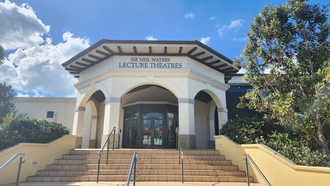
.png)
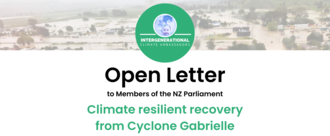
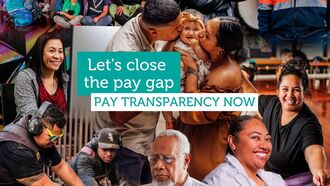
.png)
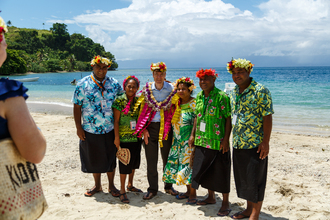%20(1).jpg)

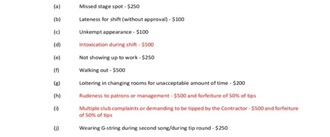.jpg)

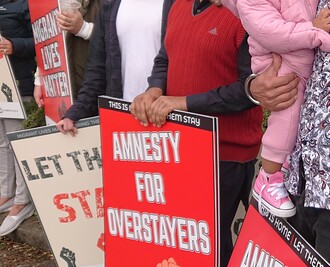
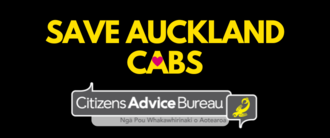.png)
